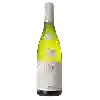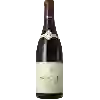
Caves de MarsignyChantoiseau Crémant de Bourgogne Blanc de Blancs Brut
This wine generally goes well with poultry, appetizers and snacks or lean fish.
Food and wine pairings with Chantoiseau Crémant de Bourgogne Blanc de Blancs Brut
Pairings that work perfectly with Chantoiseau Crémant de Bourgogne Blanc de Blancs Brut
Original food and wine pairings with Chantoiseau Crémant de Bourgogne Blanc de Blancs Brut
The Chantoiseau Crémant de Bourgogne Blanc de Blancs Brut of Caves de Marsigny matches generally quite well with dishes of shellfish, poultry or appetizers and snacks such as recipes of calamari with chorizo, chicken and mushroom risotto or tuna samoussa.
Details and technical informations about Caves de Marsigny's Chantoiseau Crémant de Bourgogne Blanc de Blancs Brut.
Discover the grape variety: Chardonnay
The white Chardonnay is a grape variety that originated in France (Burgundy). It produces a variety of grape specially used for wine making. It is rare to find this grape to eat on our tables. This variety of grape is characterized by small bunches, and small grapes. White Chardonnay can be found in many vineyards: South West, Burgundy, Jura, Languedoc & Roussillon, Cognac, Bordeaux, Beaujolais, Savoie & Bugey, Loire Valley, Champagne, Rhone Valley, Armagnac, Lorraine, Alsace, Provence & Corsica.
Informations about the Caves de Marsigny
The Caves de Marsigny is one of of the world's great estates. It offers 21 wines for sale in the of Crémant de Bourgogne to come and discover on site or to buy online.
The wine region of Crémant de Bourgogne
Recognized in 1975, the appellation crémant-de-bourgogne replaced the Sparkling wines whose quality was not very homogeneous. Its geographical area, very vast, covers more than 300 communes, of Châtillonnais, with the borders of Champagne auboise, with Beaujolais included. The AOC imposes conditions of harvest and elaboration as strict as those of the Champagne region and copied on this one, the difference residing in the duration of Maturation on lees, which is of nine months minimum, against twelve for the champagne. The Grape varieties used also bring Crémant-de-Bourgogne closer to its illustrious Champagne model, for although all the varieties of the region can be used, Pinot Noir and Chardonnay are favoured.
The wine region of Burgundy
Bourgogne is the catch-all regional appellation title of the Burgundy wine region in eastern France ("Bourgogne" is the French name for Burgundy). Burgundy has a Complex and comprehensive appellation system; counting Premier Cru and Grand Cru titles, the region has over 700 appellation titles for its wines. Thus, Burgundy wines often come from one Vineyard (or several separate vineyards) without an appellation title specific to the region, Village or even vineyard. A standard Burgundy wine may be made from grapes grown in one or more of Burgundy's 300 communes.
The word of the wine: Roundup
Woody part of the grape bunch to which the berries are attached.














